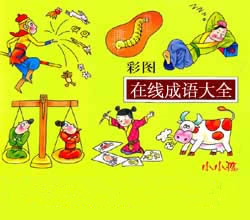英文读后感-《汤姆索亚历险记》读后感
I believe that one of the factors that makes a piece of literature or even a movie a masterpiece is how well the reader can relate to the story. This is definitely a book everyone can relate to.
The Adventures of Tom Sawyer is a literary masterpieces, written in 1876 by the famous author Mark Twain. Tom Sawyer is a mischievous young boy who lives in the small town on the Mississippi River called St. Petersburg. The story line is simple, the book reads like a biography or a memoir of a summer in Tom Sawyer's life.
Tom Sawyer seems to be the precursor of and the template for misfit kids such as Dennis the Menace, Malcolm in the Middle, and Calvin and Hobbs. What makes this story great is that Tom Sawyer represents everything that is great about childhood. The book is filled with Tom's adventures playing pirates and war with his friend Joe Harper. Tom has a trusted friend, Huck Finn, who few of the adults approve of. The book is filled with ideas of how the world works, such as how pirates and robbers work, that are so innocent, they could only come from a child. It is a story filled with action, adventure, ingenious ideas, love, and schoolyard politics. The whole story is seemingly a complication of what people did or wish they did during their childhood.
The book is a little difficult to read at first. Personally, it takes me a little while to get used to the 19th century dialect in the book. Other than referring to persons of African decent in derogatory terms (which I'm sure uses terms even young children already know), the book would be an enjoyable read for people of all ages. I highly recommend this book for anyone looking to feel young again, if just for a few hundred pages.
相关作文: 第一次升旗、给猫打扮、吃饺子、祖国在我心中600字、我爱小雪花、鸽子抢食、上情商课的心得、我的学校我的家、人生的挑战、生活中的小镜头作文200字热门作文成语素材
- 分我杯羹 羹:肉汁。楚、汉相争时,刘邦答项羽的话。比喻从别人那里分享一分利益。
- 风不鸣条 和风轻拂,树枝不发出声响。比喻社会安定。
- 傲雪凌霜 形容不畏霜雪严寒,外界条件越艰苦越有精神。比喻经过长期磨练,面对冷酷迫害或打击毫不示弱、无所畏惧。傲,傲慢、蔑视。
- 匪夷匪惠 夷:殷末周初的伯夷;惠:春秋时鲁国的柳下惠。既不是伯夷,又不是柳下惠;不具备这两位贤人的品德。形容才德不高而又驾驭的人。
- 八字没一撇 比喻事情还没有眉目。
- 分茅裂土 原指古代帝王分封诸侯时举行的仪式。后称分封诸侯。
- 拔了萝卜地皮宽 比喻为了行事方便而把碍眼的事物去掉。也比喻为了扩展地盘而排挤别人。
- 诽誉在俗 诽:指诽谤;誉:赞扬;俗:风气、习惯。诽谤或赞扬在于当时的风习。后来引申指风气、习惯的作用非常大。
- 搬斤播两 专从细小的斤两上动脑筋。
- 必争之地 敌对双方非争夺不可的战略要地。
- 闭关却扫 却:停止;却扫:不再清扫车迹,意指谢客。关上大门,扫除车迹。指闭门谢客,不和外界往来。
- 飞黄腾达 飞黄:传说中神马名;腾达:上升,引伸为发迹,宦途得意。形容骏马奔腾飞驰。比喻骤然得志,官职升得很快。
- 秉烛夜游 秉:执持。旧时比喻及时行乐。
- 不吃烟火食 烟火食:熟食。道教以为仙人可以不吃熟食。旧时用来称赞诗文立意高超,言词清丽,不同一般。
- 不今不古 指事物不正常,古代现代都不曾有过。原讥讽人学无所得却故作诡异。后常比喻折衷。
